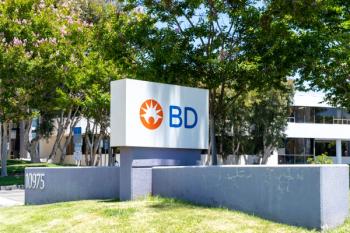
- LCGC Europe-03-01-2010
- Volume 23
- Issue 3
Event News
The International Symposium on High Performance Liquid Phase Separations and Related Techniques (the HPLC Symposium) is one of the leading international conferences in separation science. Since the first symposium in 1973, held in Interlaken, Switzerland, the conference has focused on bringing the latest in separation science theory, technology and applications to an international audience.
HPLC 2010
The International Symposium on High Performance Liquid Phase Separations and Related Techniques (the HPLC Symposium) is one of the leading international conferences in separation science. Since the first symposium in 1973, held in Interlaken, Switzerland, the conference has focused on bringing the latest in separation science theory, technology and applications to an international audience.
The 35th International Symposium on High Performance Liquid Phase Separations and Related Techniques (HPLC 2010) will take place in Boston in the Hynes Convention Center & Sheraton Boston Hotel, Boston, USA, from 19–24 June 2010 and will feature plenary and keynote lectures by separation scientists at the forefront of the field, short courses and workshops for learning about current techniques and technologies, as well as open discussion sessions for optimal interactions with fellow scientists. Among the many topics are sessions on separation fundamentals; high-temperature, high-speed and high-resolution separations; biomarker analysis and systems biology; microfluidic separation systems; developments in chromatographic column technology, including monolithic columns, small particle developments and core shell particles; and new instrumentation and novel detection schemes. In addition, applications in pharmaceutical and biopharmaceutical analysis, environmental and food safety analysis, life sciences and polymers will be featured.
The conference provides a superb venue for learning the latest advances in liquid phase separations, interact with colleagues and renew old friendships. The wide-ranging vendor exhibition will include many companies showing their latest innovations in separation science and related areas.
Several components of the HPLC series of symposia make it a valuable resource for analytical chemists, biochemists, molecular biologists and those in the separation sciences seeking practical solutions. As well as the extensive technical programme of lecture and poster presentations addressing the diverse challenges faced by today's scientists, half- and full-day short courses are designed for scientists to gain insights into the latest advances in liquid phase separations and apply them to meet their specific needs. Another popular feature is the tutorial sessions, which are designed as educational lectures for students and others new to various separations disciplines, and to provide opportunities to broaden one's understanding of separation science.
The conference social programme is always popular, and will include opening and closing receptions with the conference dinner being held at the Museum of Fine Arts. For more information please visit the event website at
23–26 March 2010
Analytica 2010
Munich, Germany
Contact: Messe München GmbH, Messegelände, 81823 München, Germany
Tel: +44 89 949 11488
Fax: +44 89 949 11489
E-mail:
24 March 2010
EMS 2010: 5th National Meeting on Environmental Mass Spectrometry
University of Chester, Chester, UK
Contact: Professor Chris Smith
Tel: +44 1244 511771
Fax: +44 1244 390496
E-mail:
Website:
19–21 April 2010
ProteoMMX — Strictly Quantitative
Best Western Queens Hotel, Chester, UK
Contact: Susan Daddio
Tel: +1 508 482 3641
E-mail:
Website:
21–22 April 2010
5th IMMS MMX — MS, Ion Mobility and other Techniques in Life Sciences
Best Western Queens Hotel, Chester, UK
Contact: Susan Daddio
Tel: +1 508 482 3641
E-mail:
Website:
12–15 September 2010
The 13th International Symposium on Preparative Industrial Chromatography
Clarion Hotel, Stockholm, Sweden
Contact: Kerstin Larsen
Tel: +46 8 553 238 51
Fax: +46 8 553 285 85
E-mail:
Website:
Articles in this issue
almost 16 years ago
Certificates for Chromatography Standards: Sense and Nonsensealmost 16 years ago
Digital Updatealmost 16 years ago
Diamonds are a Chromatographer's Best Friend?almost 16 years ago
Enhancing Signal-to-Noisealmost 16 years ago
Spring CleaningNewsletter
Join the global community of analytical scientists who trust LCGC for insights on the latest techniques, trends, and expert solutions in chromatography.




